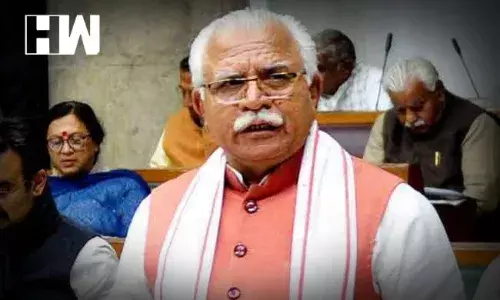Chandigarh: The Haryana Assembly has passed a resolution on April 5, against a Punjab Assembly resolution, demanding y of Chandigarh. The Punjab resolution came after Union Minister Amit Shah made an announcement of Central Service Rules will apply to the employees of the Union Territory of Chandigarh.
Punjab and Haryana share a common capital – the Union Territory of Chandigarh. Last week Aam Aadmi Party governed Punjab, held a special session and passed a resolution, seeking immediate transfer of the Union Territory of Chandigarh to the state.
“This House notes with concern the resolution passed in the Legislative Assembly of Punjab on 1 April, 2022 recommending that the matter for transfer of Chandigarh to Punjab be taken up with the Central government… This is not acceptable to the people of Haryana,” read the resolution of Haryana assembly, passed unanimously during a special session.
Haryana Chief Minister Manohar Lal Khattar raised the SYL canal issue and transfer of Hindi-speaking areas to the state, while moving the resolution. Issue of Bhakra Beas Management Board was raised by him too.
Khattar said that we need SYL not publicity for SYL.
“The Supreme Court had said that Punjab and Haryana can sit and find a solution. But we say that now there will be no talk with anyone,” he added.
In 1966 Haryana separated from Punjab. For effective allocation of water, the SYL canal link was conceptualised and both states were required to build their portions of the canal under the controversial water-sharing agreement of 1981.
Haryana under its territory, had build their portion of SYL canal. But, after the initial phase, leading to spate of litigations, stopped work.
In 2002, following a petition by Haryana, the Supreme Court asked Punjab to honour its commitment.
But two years later, Punjab’s Congress government came up with the Punjab Termination of Agreement Act with the intention to end the 1981 agreement and all other pacts relating to sharing waters of the Ravi and Beas rivers.
As an independent media platform, we do not take advertisements from governments and corporate houses. It is you, our readers, who have supported us on our journey to do honest and unbiased journalism. Please contribute, so that we can continue to do the same in future.

